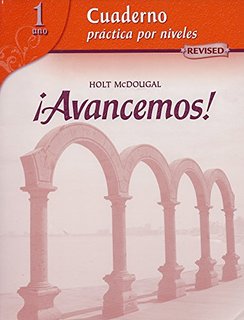
All Solutions
Page 368: Vocabulario B
2. mercado (market)
3. tiempo libre (free time)
4. joyas (jewelry)
– lo dejo – I’ll sell it/I’ll give it
– le puedo ofrecer – I can offer you
– me deja ver – would you let me have a look
– qué caro – how expensive
It would be best if we translated the dialogue so that we have a better understanding of the context.
It looks like Martín has just entered the store and greeted the jeweler. Martín is interested in a silver ring and wants to have a look at it.
*”**¿Me deja ver** el anillo de plata?”* fits the best in this sentence.
The jeweler offers another product, so here we will put *”**le puedo ofrecer** algunos de oro.”*
Martín seems surprised. The best fit for this sentece is *”¡**qué caro**!”*
The jewel is negotiating the price, so *”**lo dejo** más barato si compra dos.”* fits perfectly here.
Note that in some sentences, you will have to conjugate the verb. In others, you won’t, and you will use the infinitive form of the verb.
*(Claudia is surfing on the beach.)*
Claudia is third-person singular, so we used the third-person singular form of the verb *”hacer,”* and got *”hace.”*
*(Alejandro is having barbecue at his house.)*
Alejandro is third-person singular, so, again, we conjugated the verb *”hacer”* and got “*hace”* as a result.
*(Guys are going to camp in the open air.)*
This sentence is different than the previous two. Here, we have a common construction *”**van + a + infinitive**,” used to talk about something we are going to do.* The key element here is the prepositon *”**a**,”* which is followed by an infinitive.
For example:
– yo voy *a viajar*
– tú vas *a viajar*
– él/ella va *a viajar*
– nosotros vamos *a viajar*
– etc.

